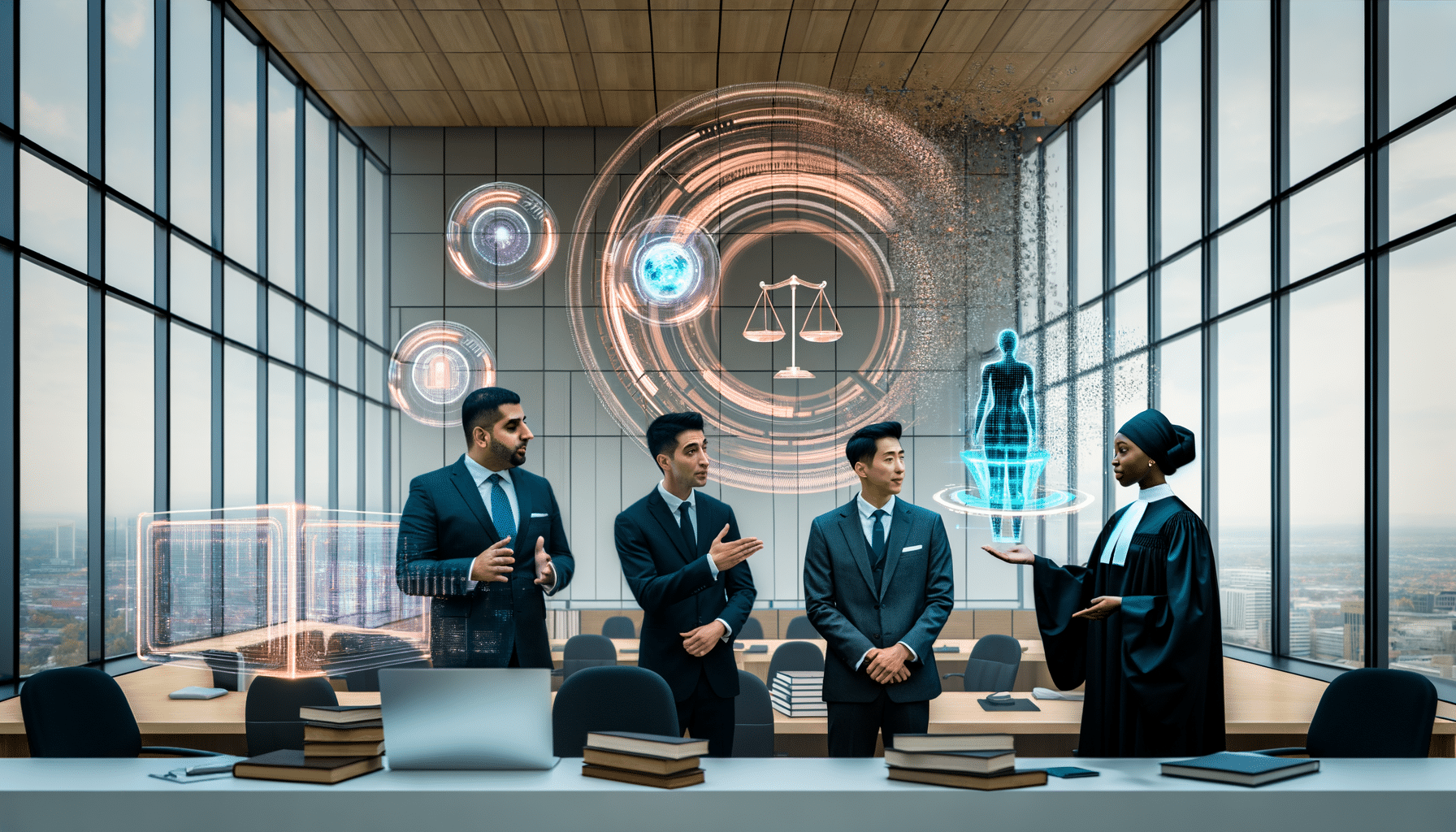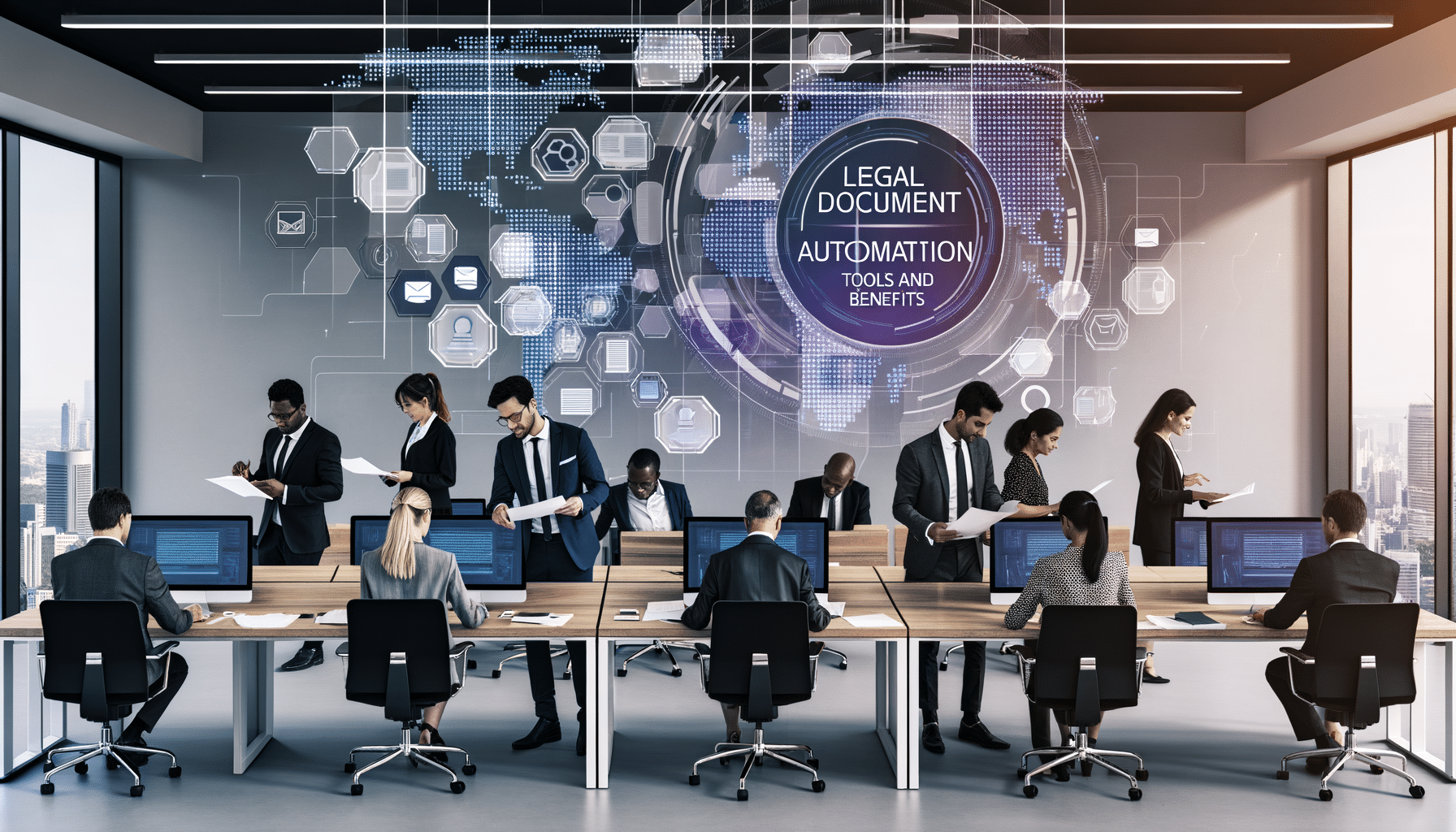- Technology Integration
- November 1, 2024
Legal Challenges in Adopting AI-Powered Evidence Analysis

Transforming Evidence Analysis with AI: Navigating Legal Challenges
In my journey developing RecordsKeeper.AI, I’ve witnessed first-hand the transformative power of AI in record management. However, when it comes to integrating AI evidence analysis into legal processes, unique challenges often serve as formidable obstacles. Today, I want to take you through some of the key legal hurdles associated with employing AI for evidence analysis and how we can address them effectively.
Understanding the Legal Ecosystem
The legal sector is historically stringent when it comes to adopting new technologies. Understandably, the stakes are high, and ethical concerns can’t be understated. In consideration of AI evidence analysis, it is essential to align AI capabilities with legal protocols, ensuring credibility and accuracy in results. These ambitious goals necessitate overcoming several challenges.
Data Privacy and Compliance
One of the primary hurdles is to ensure compliance with data privacy laws such as GDPR and HIPAA. Legal professionals must strike a balance between innovation and regulation, safeguarding individual rights while maximizing AI’s capabilities. Compliance isn’t optional, and when coupled with AI, it becomes even more complex. We must develop robust frameworks that allow AI systems to operate within such constraints while still delivering value. This is where compliance management tools, like those integrated into RecordsKeeper.AI, become indispensable.
Ethical Concerns and Bias
AI, when designed poorly, can produce results that are inconsistent with ethical standards or discriminatory. This is particularly concerning in the legal domain where biased evidence analysis can have far-reaching consequences. Developing transparent algorithms and ensuring diversity in training data sets are paramount to minimize this risk. By implementing AI with the utmost care, and continuously validating its outputs, we foster trust and fairness in the judicial process.
Admissibility of AI-Processed Evidence
The legal community is still grappling with the admissibility of AI-processed evidence in courtrooms. It’s crucial that AI models are not only accurate but also transparent and explainable. Legal decisions rely on the integrity and accountability of evidence collection and analysis processes, compelling tech providers and legal authorities alike to collaborate in developing standardized protocols that govern their use.
Cybersecurity Risks
With the proliferation of AI tools, cybersecurity emerges as a substantial legal challenge. Handling sensitive legal documents and case materials demands heightened security measures that AI systems must comply with. Features like secure data rooms and end-to-end encryption become necessary in safeguarding legal data from unauthorized access and manipulation, thus upholding the integrity of the evidence.
Navigating Intellectual Property Rights
Intellectual property concerns arise wherever AI systems generate or manipulate data. Whether it involves proprietary algorithms or data ownership, navigating these intricacies is essential. I recommend legal teams work closely with tech providers to establish clear terms that protect ownership rights and promote innovation.
Building the Future
In light of these challenges, the successful integration of AI into evidence analysis relies on continuous dialogue between legal experts and tech developers. We must advocate for blending technical innovation with stringent legal frameworks, ensuring AI tools support rather than disrupt judicial processes.
At RecordsKeeper.AI, we strive to address these legal barriers by providing state-of-the-art solutions that prioritize privacy, transparency, and compliance. For practitioners and policymakers, leaning into innovative record management solutions is a strategic imperative that promises enhanced efficiency and strengthened legal integrity.
Final Thoughts
The legal landscape is changing, and technology is at the forefront. Understanding and addressing the legal challenges in adopting AI for evidence analysis is only the beginning. I invite you to explore more about how RecordsKeeper.AI can transform your approach to data management and legal compliance. Together, we can pave the way for a future where AI not only complements but enhances justice.
For further insights and to stay updated with the world of legal technology, follow along on my journey as we redefine what’s possible with AI in record management.
Toshendra Sharma is the visionary founder and CEO of RecordsKeeper.AI, spearheading the fusion of AI and blockchain to redefine enterprise record management. With a groundbreaking approach to solving complex business challenges, Toshendra combines deep expertise in blockchain and artificial intelligence with an acute understanding of enterprise compliance and security needs.
Related Posts

Legal Document Automation: Tools and Benefits
Explore the tools and advantages of automating legal document processes.
- October 13, 2024

Exploring the Role of Artificial Intelligence in Legal Filing
Learn how AI tools simplify and automate legal filing processes.
- September 3, 2024
Archives
- December 2024
- November 2024
- October 2024
- September 2024
- August 2024
- July 2024
- June 2024
- May 2024
- April 2024
- March 2024
- February 2024
- January 2024
- December 2023
- November 2023
- October 2023
- September 2023
- August 2023
- July 2023
- June 2023
- May 2023
- April 2023
- March 2023
- February 2023
- January 2023
- December 2022
- November 2022
- October 2022
- September 2022
- March 2019
Want to get more content like this?
Signup to directly get this type of content to your inbox!!
Latest Post
Organizing External Auditor Access
- December 22, 2024
Document Control in Manufacturing Plants
- December 21, 2024
Handling Rush Financial Report Requests
- December 20, 2024
Managing Record Access After Staff Changes
- December 19, 2024





